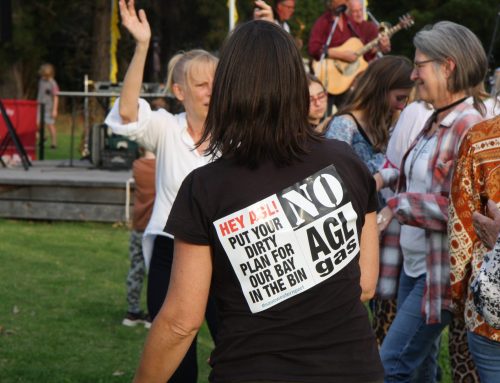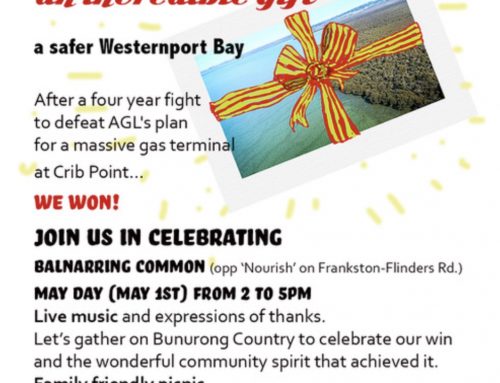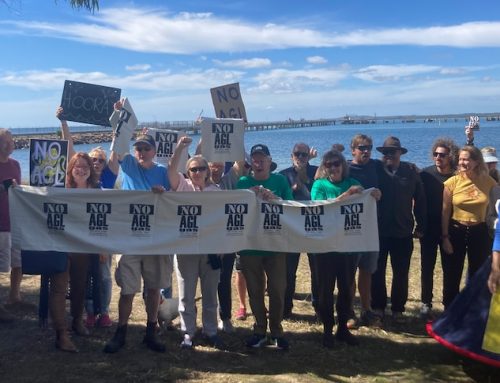Westernport’s agribusinesses, and the contribution they make to Victoria’s food production are under threat from AGL’s polluting gas import facility. Local seafood producer Harry shares his concerns about the AGL proposal at Crib Point, and the threats currently facing Westernport from the gas processing plant.
Flinders aquiculturalist Harry grows mussels at Flinders in the clear waters of Westernport Bay. Aquiculture is a sustainable combination of farming and fishing, and Harry’s seafood contributes to the successful food producing economy of the area.
As populations increase, so does the importance of devising innovative and sustainable ways to produce our food. As Harry says, aquaculture ticks all the boxes.
There is little doubt that the future of aquaculture in Westernport is dependent on its healthy marine environment. Its clean green setting also contributes to its success as a food producing area. In 2018, the Mornington Peninsula was awarded the title Australia’s Most Outstanding Region in the renowned Delicious Produce Awards. That kind of recognition is priceless. It relies on a region’s healthy reputation, which can take decades to establish.
There’s no doubt that Westernport is the lesser known coast of the Mornington Peninsula, and while part of the bay has been used as an industrial since the 1960s, other areas have remained relatively unspoiled. Fortunately much of the over-development that occurred in other coastal areas around the city of Melbourne is not as common around Westernport. As a result, neighbouring Port Phillip Bay has just 300 species of marine invertebrates, whereas Westernport Bay supports over 1300, the great proportion of which remain unstudied.
In recent years, better environmental management and improved protections from heavy industry have seen the ecology of the bay begin to regenerate. This has resulted in an increase in the total area stabilized by essential sea grasses and mangroves, which serve as essential nurseries to much marine life.
AGL’s project reports reveal that the imported gas would be processed using pollutants like Sodium Hypochlorite (or chlorine), as well as causing temperature changes, as the effluent would be dumped straight into the waters of the bay. The tankers needed to supply the floating gas factory would increase ship movements in the bay by around 40%.
It has become clear that the potential effects of the AGL project are simply not compatible with sustainable commercial development, like the seafood production within the Flinders Aquaculture reserve.
Local residents and business people hold grave concerns that the gas plant would set conditions in the bay back decades and further degrade the area. How can such risks possibly be justified to import gas, when industry reports predict that Australia’s own gas reserves will be sufficient to supply our needs for decades to come?




